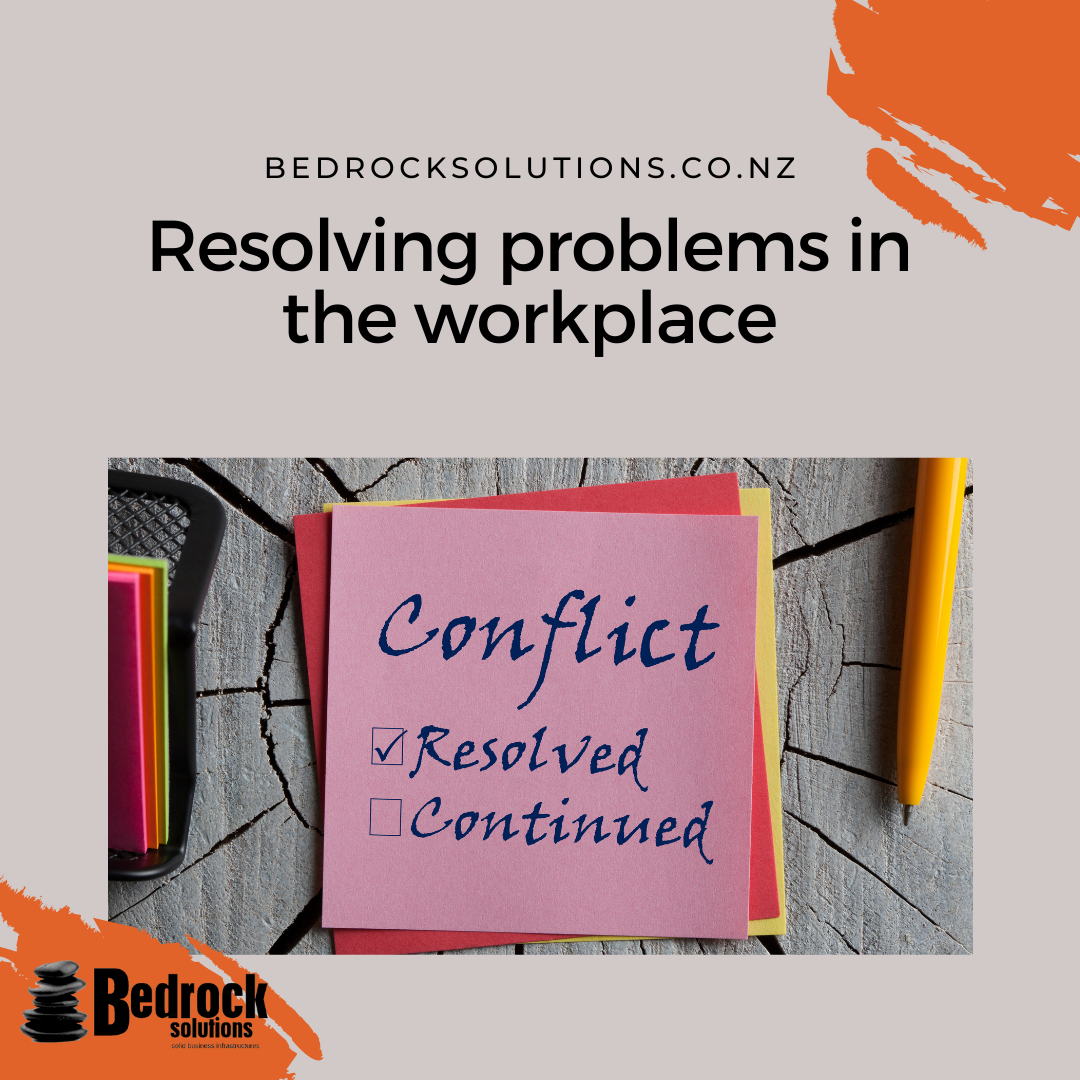Resolving Problems in the Workplace
Did you know it is a legal requirement for every workplace to have transparent processes in place for staff to resolve problems? Do not panic yet if you do not have such processes in place! There is a simple solution.
Include a clause in your Health and Safety Policy such as “Company X has adopted the Employment New Zealand processes for resolving problems. At the time of induction the new employee will receive an induction pack with an electronic link to this website www.employment.govt.nz/resolving-problems/.”
The great aspect about adopting Employment New Zealand’s resolving problems processes, every aspect aligns with our legislative requirement, and the content is maintained by them. The next step is to familiarise yourself with the underpinning processes. However, as I am sure you would agree the best way to deal with any employment problem is to avoid these happening in the first place.
Some simple practices can help make relationships smoother and prevent problems:
- Take time to communicate clearly. Poor communication often causes disputes and misunderstandings.
- Raising concerns when they first come up can help stop them becoming bigger and harder to resolve.
- Make sure workplace policies, practices and/or work rules are easy to understand and well communicated
- Put in place and use effective systems and processes for setting performance expectations, having regular performance conversations, staff updates about what is going on and for dealing with such things as change and managing performance issues.
- Put in place processes to address and investigate complaints that employees might raise, such as complaints of bullying, discrimination, or sexual harassment.
- Promote a culture where everyone shares the responsibility for preventing and clearing up confusion or mistakes. For example, if an employee believes they are being overpaid, the employee should raise the potential error.
- Employees and employers should keep themselves well informed about their employment rights and responsibilities.
It is a good idea for both parties to record important conversations in writing. The written record does not need to be complex, but it should be dated, accurate, and stored carefully. If a problem does happen then dealing with it quickly using the policy and processes in place, should help to stop the problem from getting bigger.
Click here to view our services.
Date Posted: 12 August 2021

